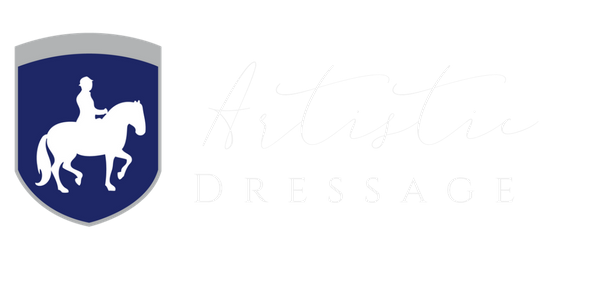Today's blog post is a "Guest Post" from one of our students, Dr. Kristen Guest. Enjoy!
"I have time" should be the guiding word especially of dressage riders during the entire course of training and remind him of the fact that the goal of the classical art of riding is to be attained only by the gradual increase of demands."
Colonel Alois Podhajsky
If I have a mantra for my riding it is “I have time.” Podhasjsky’s belief that patience is a cornerstone of the art of dressage takes into account the requirement that the horse be allowed to develop the strength, balance and understanding to develop to his full potential while remaining sound and happy in his work. Yet, I also struggle bitterly with impatience: with the desire to move forward, to get to the next level. I turn fifty this year, and I increasingly see that my ambitions as a rider must be balanced against the fact that my time is not infinite. Holding onto what I know to be true—that only by taking as much time as is needed can I ever hope to meet my goals—is hard. It is also hard to maintain perspective when my horse needs more time, or when I don’t “get” the lesson and have to grapple with it for months (or years!), struggling to get the lightbulb moment that will allow me to go forward. Hardest of all is watching others do things easily that my horse and I are struggling to learn.
In the course of my struggles I have been lucky. I have the support of an instructor who has insisted firmly (and repeatedly) the futility both of pushing too hard and of comparing oneself with others. Perhaps even more forcefully, my horses have underlined for me the importance of patience.
My first dressage horse, an off-track thoroughbred, was the most unlikely schoolmaster imaginable. Unlike the ideal—the educated horse who patiently helps his rider learn the movements and overlooks her deficiencies—my horse came to dressage (as did I) with no prior experience. Also unlike the ideal, he was cranky, difficult, and he seemed to go out of his way to emphasize any missteps on my part by throwing spectacular temper tantrums. Moving forward required both that I get everything right, and that significant time be invested in convincing him that yielding to basic requirements such as bending and side-stepping were not going to kill him.
With a lot of help we did progress, but our improvement was neither fast nor dramatic. We almost never mastered a new skill or pattern in one ride, or even dozens. Measuring progress under such conditions was nearly impossible. What kept me going, and what turned out to be the most important lesson this horse had to teach me, was the ability to recognize the cumulative effect of many imperceptible baby steps. If I looked back on a single ride, nothing seemed to be happening. If I looked back over six months or a year, however, progress was significant. Then one day in the middle of a lesson we were doing a canter pattern and I said “this is wonderful: he feels like an advanced horse,” and Thomas said “well, he *is* an advanced horse.”
I wish I could say that I fully integrated the insight of patience, but it remains an ongoing struggle. My young horse, much more talented and willing than my thoroughbred, reminds me all the time that just because he offers something extraordinary does not mean that I should exploit it: that sometimes these moments are just previews of great things to come that will need long, slow work to develop the strength necessary to carry them off. He also reminds me that pushing ahead too fast can create problems in the training that take a long time to sort out: much longer than if I had been patient in the first place.
So at this point you might be wondering if I am going to offer useful instructions about how to become a more patient rider. I’m afraid I don’t really have any. What I have discovered, however, is that slow, steady, incremental progress is in many ways the best kind—the kind that, one day, seemingly out of the blue, produces the “advanced” horse that hurrying could not.
- Dr. Kristen Guest

